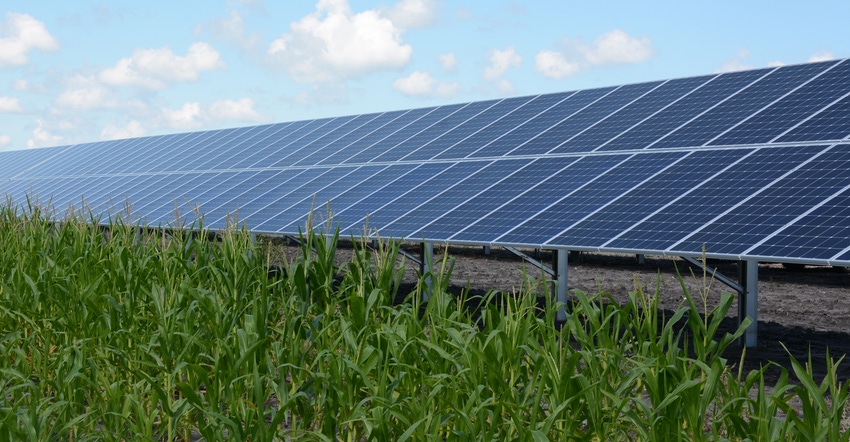August 31, 2021

Solar leases are a way to diversify the income from farmland.
These are long-term commitments with lasting impacts on the farm. It is important to think through the decision carefully before moving forward. When reviewing a solar lease, the following are some items to consider:
• Research the company that will be developing the solar site. Does it have a good reputation?
• Does the solar lease make sense for the long-term goals of your farm and family? This is a good time to review the long-term farming plans of your family members.
• Make sure you understand the rent payment terms, so you can make plans for cash flow. Is the rent based on the amount of energy produced, or is it a flat rate for the term? Are there terms that increase the rent for inflation over time? Talk with your accountant to review any tax implications.
• Review how the lease term runs and how the term renews.
• Make sure the lease agreement discusses how your property can be used for agricultural purposes, and determine how you will be compensated for land that cannot be used. Be sure to negotiate the terms for any agricultural losses you experience.
• Will your use of the land be limited? For example, will you be able to plant trees as wind blocks or construct farm buildings and bins on areas near the solar site?
• Determine how damage to the farm will be repaired or replaced. In particular, address the issues of tiling, fencing and ditches.
• Who is responsible for weed control, fencing, roads and ditches?
• When the lease period is complete, how will the land be restored? What guarantees are there for funding this restoration?
• Think of all aspects of the farm operation. How will you spray crops? How will the access roads be kept open in the winter? Will there be restrictions on planting or harvest because of construction? If tiling or ditches need to be repaired or replaced, how will this involve the solar farm?
It important to think long term, because these lease agreements can run as long as 50 years. In your farm succession plan, it will be important to determine how the income from the solar farm will be distributed to your beneficiaries. Will the income stay with the farm or flow to the landowners? This is important especially if there are farming and nonfarming beneficiaries who will end up owning the land.
Balzarini is an attorney at law with Miller Legal Strategic Planning Centers P.A. Email your questions and comments to him at [email protected].
About the Author(s)
You May Also Like






